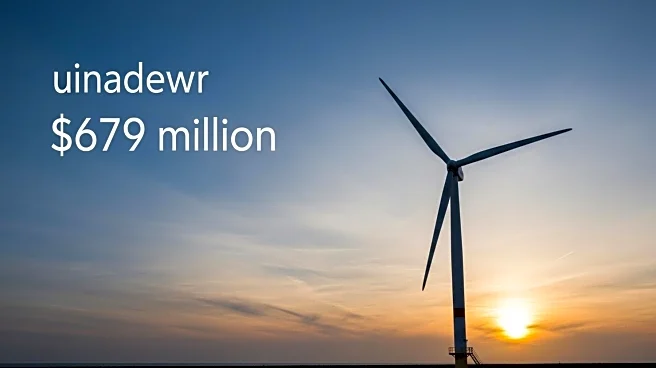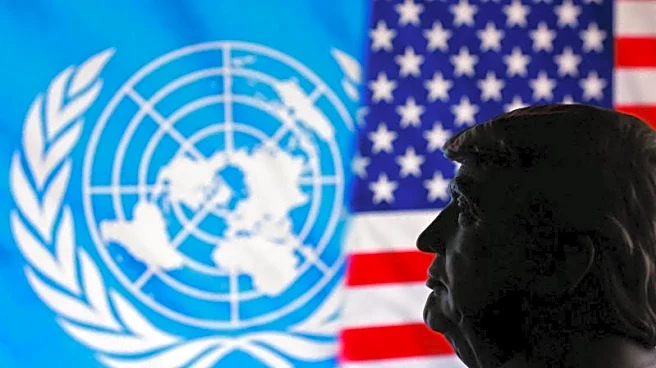What is the story about?
What's Happening?
U.S. Transportation Secretary Sean P. Duffy has announced the withdrawal and termination of $679 million in funding for 12 offshore wind projects across the United States. This decision is part of a broader strategy to redirect federal resources towards enhancing America's maritime industry and infrastructure. Duffy criticized previous administrations for allocating transportation funds to what he termed 'wasteful' wind projects, which he believes detract from essential shipbuilding and port infrastructure needs. The Trump Administration is refocusing efforts on traditional energy forms and utilizing natural resources to bolster American energy independence. The Department of Transportation (USDOT) and its Maritime Administration (MARAD) are prioritizing projects that align with these goals, including critical port upgrades.
Why It's Important?
The withdrawal of funds from offshore wind projects signifies a shift in federal energy policy under the Trump Administration, emphasizing traditional energy sources and maritime infrastructure over renewable energy initiatives. This move could impact the renewable energy sector, potentially slowing the development of offshore wind capabilities in the U.S. It reflects a prioritization of immediate infrastructure needs and maritime industry revitalization, which could benefit sectors reliant on shipping and port operations. However, it may also lead to criticism from environmental groups and renewable energy advocates who support the transition to cleaner energy sources.
What's Next?
The reallocated funds are expected to be directed towards port upgrades and other infrastructure projects deemed critical by the USDOT. This could lead to increased investment in shipbuilding and maritime operations, potentially enhancing U.S. competitiveness in global shipping. Stakeholders in the renewable energy sector may seek alternative funding sources or advocate for policy changes to support offshore wind development. The decision may also prompt discussions among policymakers regarding the balance between traditional and renewable energy investments.
Beyond the Headlines
This development raises questions about the long-term implications for U.S. energy policy and environmental commitments. The focus on traditional energy sources may conflict with broader climate goals and international agreements aimed at reducing carbon emissions. It also highlights the ongoing debate between economic growth and environmental sustainability, with potential legal and ethical considerations regarding the allocation of federal funds.

















